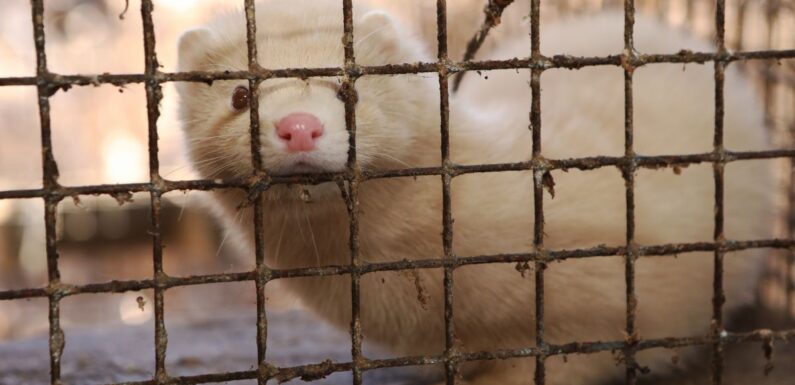
Avian flu: Expert fires warning about virus in 2005
Fur farms — particularly those housing mink — can act as reservoirs of zoonotic disease and risk starting the next deadly pandemic.
This is the warning of virologists from Imperial College London, in the wake of a series of outbreaks of H5N1 avian influenza on mink and also fox farms in Finland and Spain.
Mink, the researchers note, are highly susceptible to infection with several viruses that are also known to be able to infect humans.
The experts are calling for governments to consider fur farming as being in the same category of risk level as the bushmeat trade and live animal markets.
They also point to recent studies that have suggested that the avian flu may be demonstrating the potential to mutate and spread mammal-to-mammal, increasing the risk of the virus spawning a pandemic in the future.
READ MORE: Pandemic fears in wake of ‘concerning’ bird flu outbreak at mink farm
This month, animals including mink and foxes have tested positive for highly pathogenic avian influenza H5N1 on 10 fur farms in Finland.
Other premises in the country are also under suspicion of outbreaks and awaiting test results to confirm.
The first outbreak of avian flu on a fur farm took place in October last year on the property of a business intensively breeding a staggering 52,000 mink.
That incident, which experts called “incredibly concerning”, reignited calls for governments across the globe to put an end to the practice of farming animals for their furs.
The article flagging the risk from fur farming was written by Professor Wendy Barclay and Dr Thomas Peacock of Imperial College London’s Department of Infectious Disease.
The duo writes: “Fur farming takes place in a high-density animal environment that allows for rapid spread of viruses with pandemic potential — and for virus adaptations to animals that would be unlikely to occur in nature.”
Fur farming, they continued, “is banned across many European countries and North American states or territories. Several other regions have set dates for phasing it out.
“These bans have historically been a response to ethical concerns about the treatment of these animals.
“We strongly urge governments to also consider the mounting evidence suggesting that fur farming, particularly mink, be eliminated in the interests of pandemic preparedness.
“Fur farming should be in the same category of high-risk practices as the bushmeat trade and live animal markets. These activities all increase the likelihood of future pandemics.”
We use your sign-up to provide content in ways you’ve consented to and to improve our understanding of you. This may include adverts from us and 3rd parties based on our understanding. You can unsubscribe at any time. More info
DON’T MISS:
Heatstroke symptoms to watch for in kids as Europe boils in holiday season[INSIGHT]
Cancer breakthrough as experts find existing drug can fight aggressive tumors[REPORT]
Ovarian cancer risk may be higher in seven popular professions, scientists warn[ANALYSIS]
Claire Bass is a senior director of campaigns and public affairs at the Humane Society International.
She said: “In addition to the appalling suffering animals on fur farms are subjected to as fashion victims, the fur trade also poses a very real danger to public health.
“These very worrying outbreaks of avian flu on fox and mink farms in Spain and Finland follow many hundreds of outbreaks of the COVID-19 virus on fur farms across Europe and North America.
“Factory farming animals for fur is playing Russian roulette with public health — for an entirely frivolous product.”
In the UK, fur farming was banned back in the year 2003, but fur is still imported from various countries, including Canada, China, Finland, France, Italy, Poland and Spain.
In fact, according to data from the HM Revenue & Customs, a whopping £14.9 million of fur was imported into the UK last year alone.
In response, the Humane Society International/UK is urging the UK Government to “end this double standard” by banning the import and sale of fur as part of their #FurFreeBritain campaign.
The virologists’ article was published in the journal Proceedings of the National Academy of Sciences.
Follow our social media accounts on https://www.facebook.com/ExpressUSNews and @ExpressUSNews
Source: Read Full Article


